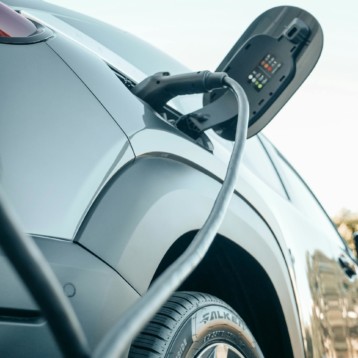With the onset of the coronavirus pandemic in 2020, the global auto industry has faced many challenges and, at the same time, preferences. It turned out that global inventories of new cars were very low and this led to a sharp jump in prices against the backdrop of strong consumer demand.
But in 2022, demand fell sharply – buying a new car was unaffordable for many consumers due to declining income levels. But car rental salons began to be in great demand. Renting a car turned out to be cheaper and more convenient. People preferred to rent a car to go on vacation or to a business meeting. Rental cars have become especially popular in countries where the standard of living is high, there is a lot of entertainment, but it is inconvenient to travel on foot, for example, the UAE. It is much more convenient to use Lamborghini for rent in dubai than to travel by public transport. To regain the interest of buyers, automakers are trying to change trends, putting in the forefront factors that previously received less attention.
What does the future hold for car rentals and the entire automotive industry?

Car Rental Trends
The future of the car rental industry is poised for significant transformation as technology, consumer preferences, and environmental concerns continue to shape the market.
- Car rental companies may offer more personalized services including rental car customization.
- The industry is likely to witness a shift towards electric and autonomous vehicles. People worldwide choose eco-friendly and innovative transportation solutions.
- Car rental services may move towards subscription-based models. This allows customers to pay a monthly fee for access to a variety of vehicles.
- Moreover, people will use special digital platforms and mobile apps to book cars for lease and choose the most suitable.
- After the COVID-19 pandemic, car rental companies will continue to prioritize hygiene protocols and implement stringent safety measures.
- Car rental companies will increasingly rely on data analytics to understand customer behavior, improve operational efficiency, and tailor services.
Global Automotive Industry Trends
- A slow-growing economy puts negative pressure on the automobile market. The fall in household incomes is the main factor holding back the development of auto production.
- In 2024, retail sales are expected to decline; the trend will be toward commercial buyers, government agencies, and rental companies. While choosing between purchase and car sharing people more often will choose the second option.
- There will be a sharp increase in sales of electric vehicles – by at least 60%. This is due to the ban on diesel engines in many countries, as well as the sharp rise in prices for liquid and gas fuels.
- The value of used cars will fall. Prices peaked in January 2022, when prices jumped by a record 88%. It fell 14.9% last year and is expected to fall another 4.3% by the end of this year. This is primarily due to the high cost of spare parts and repairs of used cars.
- Car affordability is already a concern among experts. Only a small part of buyers will be able to pay for a new car immediately. And if you take out a loan, the average monthly payments also become unaffordable. Rates for new cars are expected to be within 8% and for used cars 13-14%. That is why the demand for car rental services will increase.
- High interest rates make buying cars much more expensive for the bulk of buyers and less profitable for wealthy consumers. In the last 2 years, they have preferred cash payments, which will lead to a decrease in tax revenues due to collusion between buyers and sellers.
- Due to the lack of new cars on the market and the high costs of purchasing them, consumers are trying to keep their vehicles longer and use car rental services. This will lead to an increase in dealership revenue for maintenance services, which will compensate for their losses due to falling sales.
- The coronavirus pandemic has forced car dealers to work more and more actively online – this trend will only develop. Many companies have already switched almost completely to remote work.
- The Internet of Things helps car businesses thrive. Automakers are changing priorities and intend to focus on the production of electric vehicles, as the governments of many countries promise significant tax breaks. Such incentives for commercial vehicles and fleet owners promise to yield significant benefits.
According to experts, the unsatisfied demand for new and used cars, which arose in connection with the semiconductor crisis, as well as global politics, will be overcome by the beginning of 2024. In the first half of this year, the shortage of cars on the world market was estimated at 3.5 million units. At the end of the third quarter, this figure fell to 2.5 million cars.










